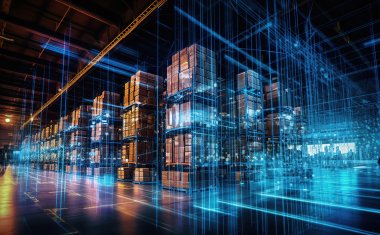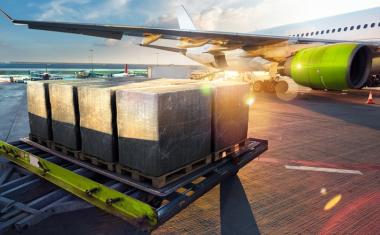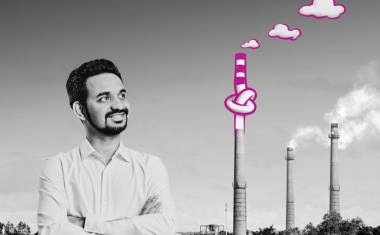Getting The Pulse






The Lion City - The Merlion - a mythical creature with the head of a lion and the body of a fish - is regarded as the Singapore icon ("Singapura" means "lion city" in Sanskrit). As one of the world's leading energy and chemical hubs, Singapore's contribution to the chemical industry is vast, both in terms of output and research. The city state in the center of Asian emerging markets continues to receive glowing reviews year after year for its infrastructure, manpower capabilities, as well as ease of doing business. And the Republic is constantly working to stay at the forefront of the industry's advancement and benefit from the Asian growth story. Michael Reubold spoke with Kian Teik Beh, International Director Europe of the Singapore Economic Development Board (EDB) about Singapore's strategy to create a perfect business environment for chemical and pharmaceutical companies.
CHEManager Europe: Let us start by looking back three years. During the global crisis of 2008/2009 that hit the entire world, Singapore's economic growth rate dropped to negative 2%. How did your government react to that unprecedented situation and how did Singapore's economy rebound in the aftermath of the crisis?
Kian Teik Beh: During that period of uncertainty, the government responded in a very level-headed and clear-sighted way by setting aside extra budget to help companies co-share their hiring costs and train their employees. It was a period when demand plunged dramatically and nobody knew how long the uncertainty would last. We took the opportunity to improve Singapore's industrial base. As soon as the economy rebounded - at a pace that was unexpected - we grew at 14.9% in 2010. Germany adopted a similar model of providing support for the industry, and I believe that is why Germany also grew above average.
But not every Asian economy rebounded at such a high rate. Why is that?
Kian Teik Beh: The reason why Singapore grew at that speed was because people were going for re-training during the economic downturn. When the economy rebounded, employers didn't have to hire new staff because they were still meaningfully employed, well-trained and prepared. As we had prevented minimal lay-offs, our economy was able to react to the surging demand immediately.
Another reason for Singapore's high growth rate is a changing mindset of investors. Take for instance sectors such as specialty chemicals, food or pharmaceuticals. These sectors are responding to the growing demand of the Asian emerging markets for nutrition, health & consumer care, construction materials or transportation. The growth that we are experiencing is also testimony to the Asian growth story.
Before the economic crisis, most companies were focusing their attention on China, but now they are thinking beyond China. They see the emerging markets of Southeast Asia like Indonesia, Vietnam, Thailand and Myanmar. Companies want to respond to these growth opportunities in a manner that will allow them to grow with the market but also make sure that the growth is sustainable. Therefore, they choose a location within this region that will allow them to be flexible depending on where the growth is. And this is the story of Singapore. Everyone is looking for growth, but at the same time they want to be in a place where they feel comfortable.
And Singapore is a perfect home base and hub for all the Southeast Asian countries?
Kian Teik Beh: Yes, and also for other markets around the region/ For instance, Korea, Taiwan, India, Pakistan, Australia and New Zealand. Some companies even cover Africa from Singapore.
What makes investors from the chemical and pharmaceutical industry feel comfortable in Singapore?
Kian Teik Beh: Besides being strategically located in the center of the Asian growth markets, there are several factors that speak for Singapore. In particular, the ease of setting up and doing business as well as the availability of talent. Talent is a key enabler for this complex and dynamic industry and good people are limited, especially in a region that is growing at a fast pace. So you need to pick a location that maximizes your chance of finding or attracting skilled staff. Singapore's distinguished academic establishments produce a well-trained pool of engineering and management talent as well as skilled technicians. In addition, the multi-cultural, open-minded character of our modern city makes international staff and their families feel comfortable.
You mentioned the ease of setting up and doing business in Singapore. What governmental initiatives aimed at attracting investors to Singapore are going on right now?
Kian Teik Beh: Quite a few actually. Let me explain them from the standpoint of the companies looking for a new location in this region. The first thing these companies need is a place for them to set up their business quickly. We are able to help companies set up office and lab facilities in a way that best suits their needs. It takes 30 minutes to register an enterprise and companies can either rent or build a new facility if they want to. So within a very short period of time, their physical lab is up and they can start hiring well-educated, technically trained, multi-disciplinary local staff. Education is one aspect of the macroeconomic investment that we have done. Being a multi-ethnic society, Singapore is a microcosm of Asia and , you can hire people who are able to speak English, Mandarin, Malay and Tamil , so they can speak the language of their customers.
The next thing that you need is product development, because you have to be innovative. The pace is very fast, so you have to put new products on the market not just every three years, but every two years or almost every year.
Again, speed is of the utmost importance and you require the fast setup and additional staff to meet your needs. For product development, companies need to hire scientists, engineers, and product developers. Singapore is able to fulfill those hiring needs. The strong local talent base, complemented by diverse international talent contribute to a world-class workforce, which companies can hire from to quickly ramp up their operations and drive growth in Asia.
Given the nation's strong track record for intellectual property rights protection, Singapore is ideal for companies seeking to develop and commercialize proprietary products and technologies.
On the front end, which is the market, we have set up the Institute on Asian Consumer Insight, an institute conducting market research.
Companies are able to find in Singapore the whole infrastructure they need to establish a business, staff it, obtain market information and start working with customers.
We have spoken about companies in general. Can you mention some of them who have set up subsidiaries or even headquarters in Singapore?
Kian Teik Beh: Yes. The top chemical and pharmaceutical corporations have operations in Singapore, from administration to production to research & development. Examples include GlaxoSmithKline, Johnson & Johnson, Procter & Gamble, Abbott, Evonik, Wacker, Mitsui, Clariant, Celanese, Lanxess or Unilever. If the market is there, you have no choice: you have to be there in order to get the pulse and the feel of the market.
When we are talking about manufacturing and production we are probably talking about Jurong Island.
Kian Teik Beh: Yes. Jurong Island is an integrated complex housing many of the world's leading energy and chemical companies. As you know, there are big plants like the steam crackers. But now the story for us is downstream development. Once you have got that scale, there is critical mass to produce downstream molecules.
So you want to go into specialties?
Kian Teik Beh: Exactly, that is what we are interested in. Our aim is not just to be a hub and a production center for basic chemicals, but to take those chemicals from the big steam crackers and the basic chemical plants and use them on Jurong Island for downstream industries. Singapore is well-positioned to further expand the chemical industry by focusing on high value-added specialty chemicals.
Sustainability is a big issue in the chemical industry now. If you think about a place with a lot of petrochemical industry, it doesn't necessarily go hand in hand with sustainability.
Kian Teik Beh: No, it does. I think that all of us recognize that these are products and materials that are necessary, but our accountability is to be responsible for how we produce them. We look at it from two themes; competitiveness and sustainability. We have been emphasizing this for some time and we call it our Jurong Island version 2.0 initiative. We talk about being more efficient, we think about energy and feedstock options because as Singapore positions itself for the next phase of growth, it aims to be a model of sustainable development. We are taking the lead in terms of raising the bar in energy efficiency, emissions management as well as accelerating the development of new, sustainable feedstock and technologies.
A number of high impact projects will be implemented over the next few years. These include key infrastructure such as a gasification plant and a LNG terminal for one and a half billion dollars. We feel this is the right investment for energy security, but also for clean energy.
We also actively support companies to encourage adoption of energy efficiency improvement projects. We have programs to support manufacturers to do efficiency benchmarking and help to them to upgrade their efficiency. So, we pay attention to the big things but also to the minor details, because every single thing will help make the industry a little bit more efficient.





